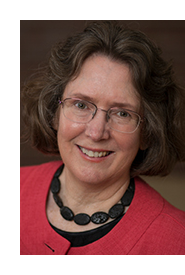PROFESSOR EMERITA TERRY SUBMITS COMMENTS ON THE ABA’S THIRD CLIENT DUE DILIGENCE DISCUSSION DRAFT
 February 2023 — Professor Laurel S. Terry, who is the H. Laddie Montague Jr. Chair in Law and Professor of Law Emerita, recently provided a third set of comments to the American Bar Association regarding its efforts to develop an explicit client due diligence ethics rule to combat money laundering. Professor Terry’s comments addressed the January 23, 2023 Third Discussion Draft of proposed revisions to the ABA Model Rules of Professional Conduct.
February 2023 — Professor Laurel S. Terry, who is the H. Laddie Montague Jr. Chair in Law and Professor of Law Emerita, recently provided a third set of comments to the American Bar Association regarding its efforts to develop an explicit client due diligence ethics rule to combat money laundering. Professor Terry’s comments addressed the January 23, 2023 Third Discussion Draft of proposed revisions to the ABA Model Rules of Professional Conduct.
Professor Terry, who is an expert regarding lawyer AML rules, appeared virtually at a Feb. 28, 2023 recorded Roundtable. The goal of the Roundtable was to help the ABA Standing Committee on Ethics and Professional Responsibility and the ABA Standing Committee on Professional Regulation determine whether and how to proceed when asking the House of Delegates to amend the Rules of Professional Conduct in August 2023.
Professor Terry’s written submission and oral comments were largely supportive of the ABA Third Discussion Draft. Professor Terry praised the ABA for having removed the problematic “if-then” structure of the proposed revisions in the Second Discussion Draft. (Professor Terry’s comments on the Second Discussion Draft had explained why the “if-then” structure was problematic.) Professor Terry recommended a few minor changes to the Third Discussion Draft, in order to remove potential ambiguities, but supported the submission of the rule to the ABA House of Delegates in August 2023.
Professor Terry concluded her written testimony by summarizing these four points that she had included in her February 2022 and September 2022 testimony:
- Money laundering [ML] is a significant global problem that affects the society in which all of us live. Because of the 3-step nature of ML, criminals are likely to seek out lawyers’ assistance. Thus, lawyers have an important role to play in reducing money laundering. In my view, lawyers will be most effective in the fight against ML if regulation focuses on lawyers’ front-end AML due diligence obligations and avoids suspicious transaction reporting obligations.
- If traditional lawyer regulators don’t adopt lawyer AML due diligence obligations, there is likely to be continuing pressure for Congress to step in. In my view, this would be regrettable. The question of “Who regulates lawyers” is an important issue. I am not currently comfortable having Congress exercise this regulatory authority over lawyers.
- After a lawyer AML due diligence rule is adopted, there needs to be a comprehensive education campaign, similar to the very effective education campaign that occurred after “technology competence” was added to the comment of ABA Model Rule 1.1.
- The education campaign should cover the contents of the new black letter language in Rule 1.16 and its Comment. It should also help lawyers understand why ML is bad for society and why the 3-stage nature of money laundering means that criminals are likely to seek lawyers’ assistance. It should also help lawyers to better recognize illegal ML requests from prospective clients.
Professor Emerita Laurel S. Terry, who held the inaugural H. Laddie Montague, Jr. Chair in Law and was Dickinson Law’s inaugural Associate Dean for Research and New Faculty Development, is a three-time Fulbright recipient who writes and speaks about the impact of globalization on the legal profession, especially with respect to regulatory issues. Her scholarship has identified emerging issues for the legal profession and urged stakeholder engagement, new initiatives, and regulatory reform. In addition to speaking at academic and professional conferences, she has been invited to speak about her scholarship to organizations that include the Conference of Chief Justices, the National Conference of Bar Examiners, the National Organization of Bar Counsel, the National Conference of Bar Presidents, the CCBE, which represents EU’s legal profession and legal regulators, the Federation of Law Societies of Canada, the International Institute of Law Association Chief Executives, the International Bar Association, and the International Conference of Legal Regulators.